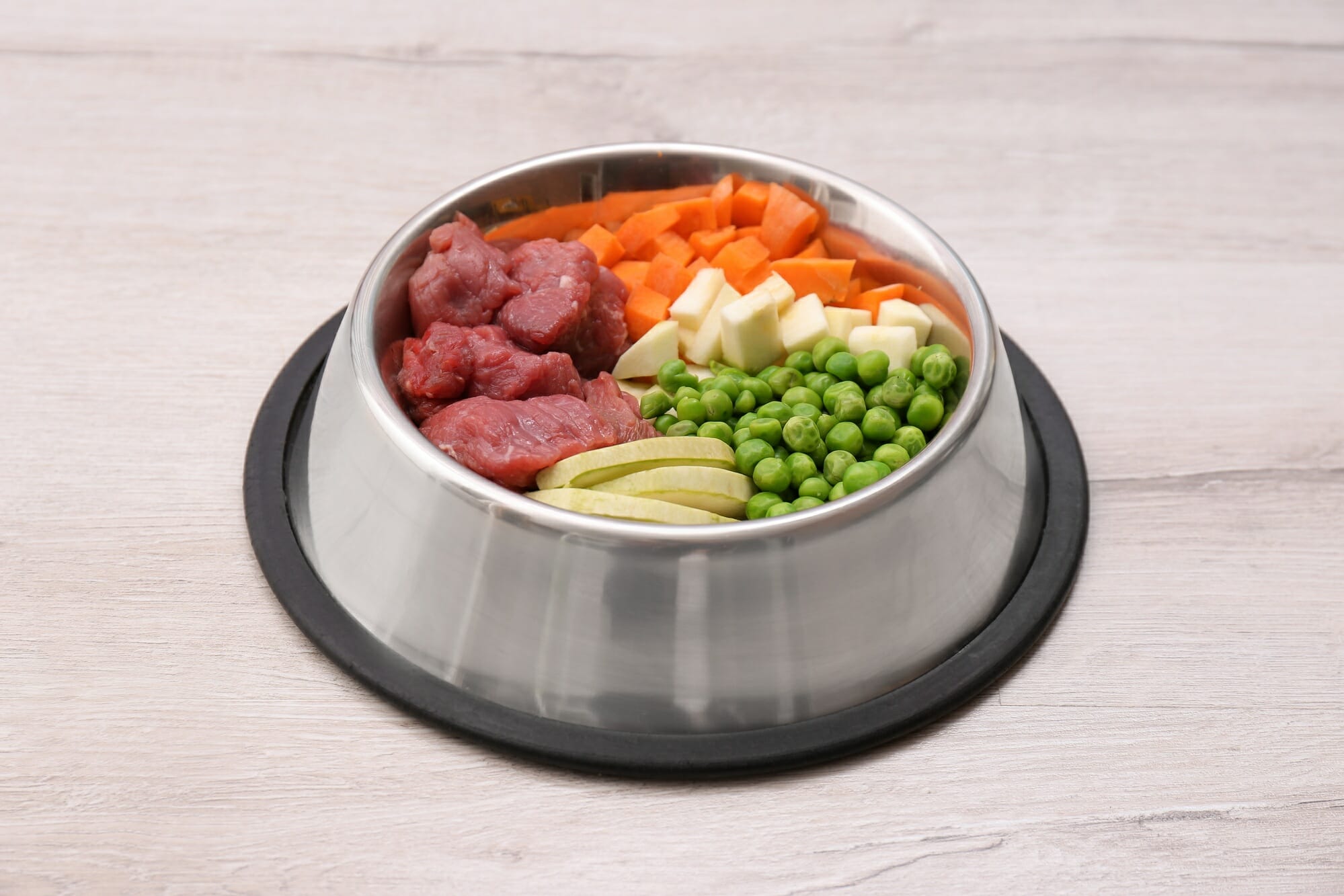Whether you’re hosting a barbeque and want to toss your dog a cut or two, bring them home restaurant goodies in a doggie bag, or feed them directly from your plate at the dinner table, it’s always pure joy. Sharing is caring, and sharing your food with your dog is priceless.
That said, we always need to make sure that we are feeding dogs food that is healthy. After all, just because something healthy for us doesn’t mean it’s good for your dogs.
Can dogs eat peas, and should you?
Why Dogs Can Eat Peas
Let’s get the answer to the main question out of the way first – yes, while there are do’s and don’ts we’ll discuss below, you can feed your dog peas. That may sound odd at first, given the fact that, as established above, “human food” isn’t always healthy pet food.”
In the case of peas, however, it’s fine, and here’s why.
It is certainly true that dogs and vegetables aren’t a natural mix. While we are omnivores, dogs are naturally carnivorous. Sure, your little fluff ball of a Shih-Tzu may not look like a fearsome wolf, but go back a few centuries or millennia, and you’ll hardly find their ancestors’ craving kibble or veggies.
As such, your dog doesn’t “need” veggies the same way we do. That said, vegetables also don’t pose the kind of health risk as other foods.
Chocolate, for example, can be toxic for dogs and cause serious health problems. It contains theobromine, which is used as a heart stimulant, muscle relaxant, and diuretic in human medicine. However, dogs are not able to process theobromine, which is what can cause huge problems.
Theobromine is a toxin for dogs, which is why they either vomit it right back up as their body tries to reject and purge it, or it remains in their system and causes major damage, from diarrhea to poisoning and kidney problems.
However, vegetables like peas don’t contain anything like theobromine and so are not toxic and are thus fine for dogs to ingest.
The Health Benefits of Peas for Dogs
Actually, they might even be more than fine. Sure, your dog may not need them, but when given in moderation, vegetables can actually be beneficial to your dog’s health. Where foods like chocolate contain toxic chemicals for dogs , peas contain vitamins and nutrients.
Peas are rich in Vitamin A and Vitamin K and have different types of Vitamin B. Also, peas contain significant amounts of iron, zinc, magnesium, and fiber.
Why do all these things matter? Because these different vitamins and minerals can improve your dog’s health in several ways, aiding their vision, digestion, immune system, heart, nerves, and skin, to name a few.
For example, different forms of Vitamin B contain thiamine.
This can help regulate energy as well as the metabolizing of carbohydrates. B12 can help improve enzyme function, which in turn can help your dog feel more energized. Vitamin B6 can do everything from generate or regulate everything from glucose to hormones to your blood cells and nervous system.
When Dogs and Peas Don’t Mix
Just because peas aren’t toxic and can provide health benefits for your dog doesn’t mean there aren’t any potential problems with serving them, however. Peas won’t elicit toxicity-induced vomiting in your dog, but they may cause them to vomit if they disagree with your dog’s stomach.
That, unfortunately, isn’t always something you can account for, as all dogs, just like all humans, are different. You won’t know whether your dogs will react negatively until you let them try it. As such, you should not feed your dog too many peas, especially for a first try.
Another reason to avoid feeding your dogs an excess of peas is that doing so can lead your dog to have extra gastrointestinal issues, especially a buildup of gas. A bowl of peas here and there may be healthy, but giving them too many too often is tempting fate (and doggie flatulence).
Furthermore, while vitamins are vital for your dog’s health, too much of a good thing can be very bad indeed, leading to health problems. For example, too much Vitamin A can leave your dog dehydrated. You, therefore, want to be careful about how many vitamins you give your dog.
That means moderating your dog’s peas intake.
Besides, peas contain a naturally-occurring chemical compound known as purines. These produce uric acid, which is normally filtered via the kidneys. However, too much uric acid can cause kidney stones and other issues.
If your dog has kidney problems, therefore, peas are not a good idea.
How to Serve Your Dog Peas
The American Kennel Club gives some tips for how to prepare peas for your dog properly.
For one thing, when we talk about “peas,” we mean green peas in general and variants such as sugar snap peas, snow peas, and English peas. For another, you want to make sure that the peas you are serving your dog are fresh, which can be served frozen or thawed.
However, you will want to void canned peas, as these can have extra sodium, another thing that doesn’t sit well with a dog’s digestive system.
What’s more, while dogs can usually eat pea pods, which are edible for humans, they can sometimes get stuck in a dog’s throat, causing choking. When in doubt, shell your peas before serving.
You always want to make sure that you are serving your dog the right things, and peas can indeed be part of a healthy diet for dogs. Some things to remember:
- While not necessary, peas have good amounts of vitamins beneficial to your dog.
- Please don’t overdo it when serving your dog peas.
- Many dog foods come with peas mixed in. That may be the best way to get started by sprinkling a few peas into your dog’s food and see how they like them and how their system reacts to them.
- Take care to prepare them the right way.
As long as you select, prepare, and serve peas the right way, they can be a small but vital part of your dog’s diet and even be a nice extra treat for them.

